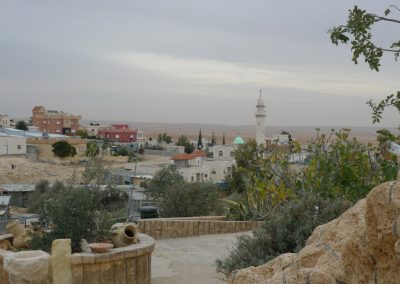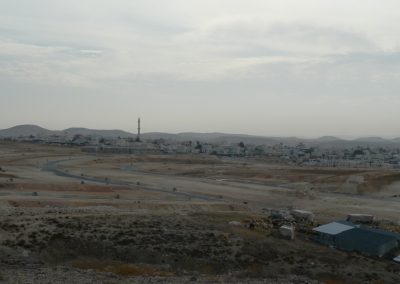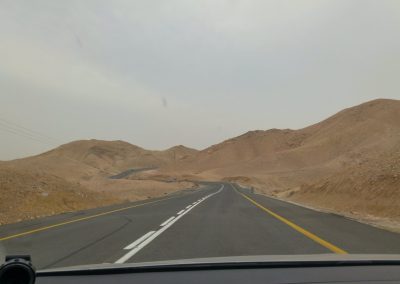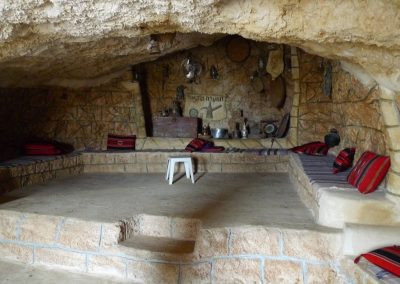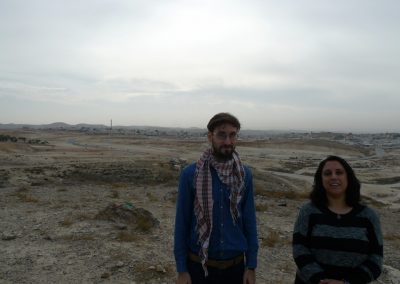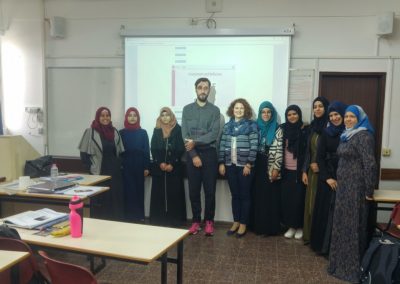Z Opola do Beer Shevy – analityczna bliskość Wschodu/ From Opole to Beer Sheva – analytical proximity of the East
Rozpoczęliśy współpracę z Izrealem. W ramach studiów z komunikacji międzykulturowej (spec. Intercultural Communication) będziemy pracować razem nad zagadnieniami sąsiedztwa kultur poddanych wielkim procesom historycznym. Nasz partner to Kaye Collage w Beer Szewie, dużym mieście a południu Izraela, na pustyni Negev. Od lat powojennych miasto zasiedlają głównie Żydzi sefaradyjscy, a od ostatniej dekady 20 wieku przybysze z byłego Związku Radzieckiego. Jednocześnie, w okolicznych wioskach (dawniej po prostu na pustyni) mieszkają Beduini.
Centrum Wielokulturowe Kaye Collage, prowadzone przez doktorów Mueena Fakhereldeena i Simona Lichmana (którzy odwiedzą naszą uczelnię w kwietniu 2018 roku) zajmuje się budowaniem komunikacji między Żydami i Arabami. Na przełomie grudnia i stycznia region Negev odwiedził dr Michał Wanke z Instytutu Socjologii, żeby poprowadzić zajęcia ze studentami, ale przede wszystkim zrealizować wizytę studyjną w wioskach beduińskich w okolicach Beer Shevy by zaplanować współny projekt.
Choć kontekst bliskowschodniej pustyni wydaje się zupełnie abstrakcyjny, w kategoriach analitycznych (przesiedlenia, lokalne kultury, spotkanie “wschodu” z “zachodem”, pewna peryferyjność) Opole i Beer Szewa są sobie dużo bliższe. Dr Wanke odwiedził miejscowości Hura i Drejat, które będą uczestniczyć w przygotowywanym projekcie badawczym. Wizyta była częścią projektu Erasmus+ KA 107. W jego ramach na UO w następnym semestrze będzie studiować pierwsza studentka z Izraela, a w kolejnych latach nasi studenci również będą mogli wyjechać na semestr studiów lub na praktykę na Bliski Wschód.
From Opole to Beer Sheva – analytical proximity of the East
We have launched cooperation with Israel. We will cooperate on the issues of neighborhood of cultures undergoing major historical processes in the framework of our study programme in Intercultural Communication. Kaye Collage in Beer Sheva is our partner coming from the main city of the Negev desert in the south of Israel. Mainly Sephardi Jews have been inhabiting the city since the after-war period and more recently the immigrants from the former Soviet Union joined them. At the same time, the nearby villages are populated by the Bedouin tribes (who used to simply wander around the Negev desert).
The Multicultural Center of the Kaye Collage run by dr. Mueen Fakhereldeen and dr. Simon Lichman (who will visit our university in April) works on building communication between Jews and Arabs. Dr. Michał Wanke of the Institute of Sociology visited the Negev region the last December and January to work with the students but also to carry out visits to the local Bedouin settlements around Beer Sheva to plan a joint project. Although the context of the middle-eastern desert seems completely remote, when one approaches it with analytical categories (resettlement, local cultures, meeting of the “East” with the “West”, certain peripheral character) – Opole and Beer Sheva appear to be much more alike. Dr. Wanke visited villages Hura and Drejat, where the upcoming project will be carried out. The visit was a part of Key Action 107 of Erasmus+ programme. The first Israeli student in the history of our university will spend her semester in Opole this spring, and in the following years our students will go to the Middle East for studies or training too.
